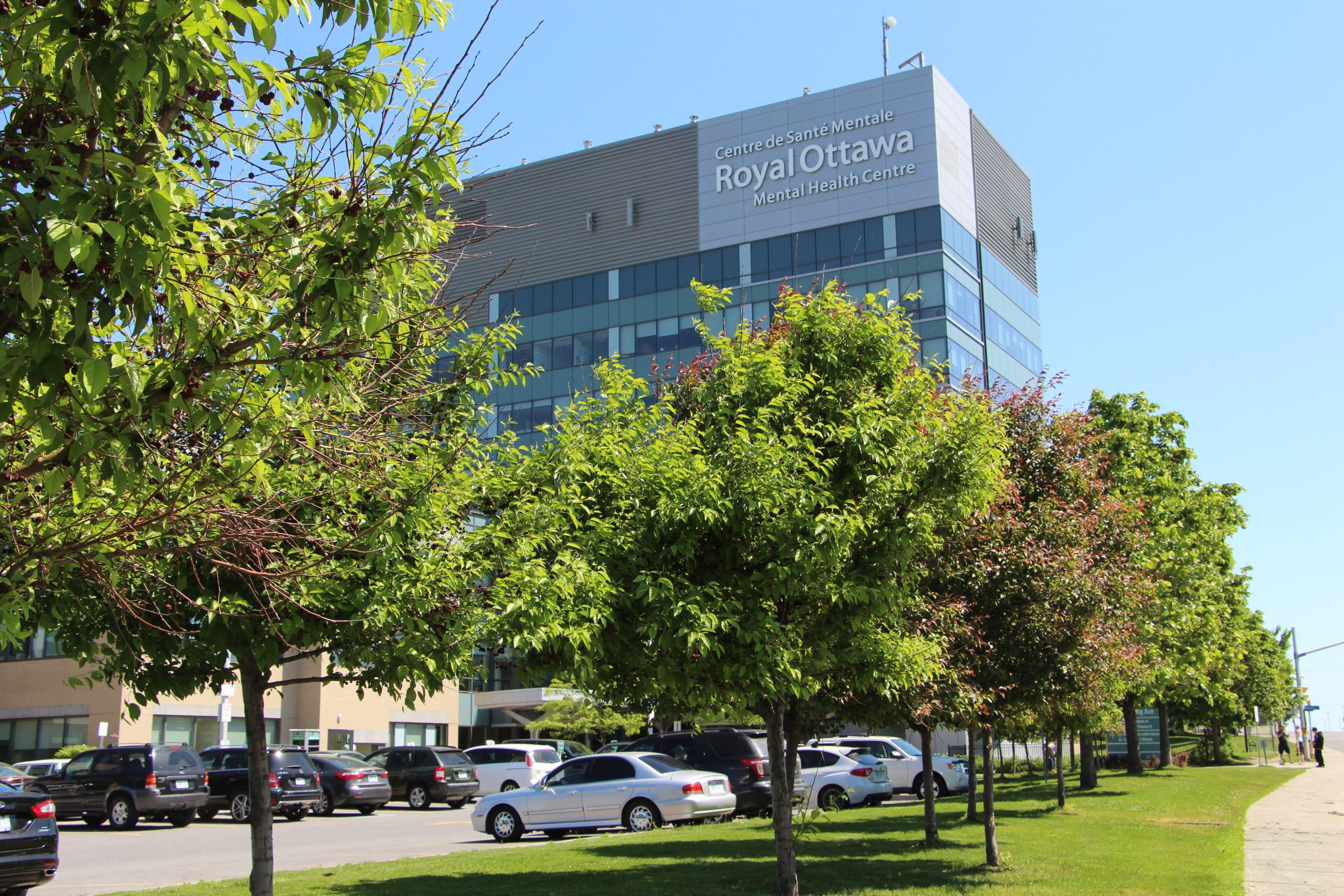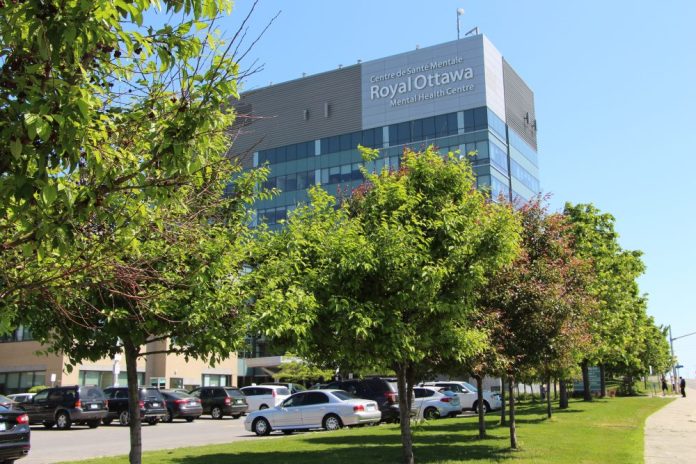
By Charlie Senack
Two months ago, when much of the city shut down to practice COVID-19 physical distancing, so did most in-person support services. The Royal Ottawa Mental Health Centre, located at 1145 Carling Ave., wanted to find a way to provide care to those with urgent mental health needs before emergencies arise.
On April 6, the Royal opened the “C-PROMPT Clinic”— a temporary, urgent-care clinic which aims to support those who are struggling and keep them out of hospital emergency rooms.
“As COVID-19 impacted outpatient and community services within our community, we anticipated a need to support clients who would have accessed these services and for those clients who had never accessed mental health services,” said Shelley Hale, director of patient care at the C-Prompt Clinic. “The intention is to keep people out of emergency rooms as much as we can, and to provide temporary services to clients until they can access their usual resources again.“
The C-Prompt Clinic is staffed by over 25 staff members at the Royal who have volunteered their time to work at the clinic. Levels will be reassessed on a monthly basis, with the clinic remaining open until in-person support can resume.
In the first 15 days after opening, the temporary clinic received 204 referrals from doctors and psychotherapists.
The care they are providing patients is primarily virtual, with clients only attending in-person if they do not have the technological means to connect, or if they require hands-on care — like an injection or blood work.
Dr. Philip Grandia, team Lead for psychotherapy at the C-Prompt Clinic, said when the COVID-19 outbreak started in Ottawa, health care services were being redirected to meet the physical needs of patients as hospitals geared up for the possibility of overcrowding.
He said this shift created a gap in mental health outpatient services in our region but that mental health care needs remain and are growing.
“In any situation where there’s a significant disruption to our normal way of life, most people experience increased stress, anxiety and/or low mood,” Grandia said. “This is certainly what we have observed without a client population. Individuals with pre-existing anxiety disorders (e.g., generalized anxiety disorder, obsessive-compulsive disorder) or mood disorders (e.g., depression, adjustment disorder) appear to have been particularly affected by the pandemic and related restrictions.”
Virtual meetings may not have the same impact as having in-person conversations, but staff at The Royal said going virtual is the best they can do during these unprecedented times.
“While never as good as face-to-face interactions, videoconferencing offers our clinicians and clients that human interaction while also keeping everyone safe,” said Dr. Grandia.
The videoconferencing software they use meets privacy standards and are easy for the clients to use.
Grandia says clinicians have adapted quickly to this change in service delivery and report a high level of comfort with telepractice.
For those patients who don’t have access to technology, the Royal has received donations of devices. Telus, among other companies, has donated a number of cell phones that clients can access during this time.
The C-Prompt Clinic is by referral only — patients have to be referred by their family doctor or psychotherapist.
“You can find our referral on www.theroyal.ca and we ask that it be completed by a health care provider, primary care provider, nurse practitioner or psychiatrist, who will assume your care once their services re-open,” said Hale. “Due to the temporary nature of C-Prompt, it is important for client care that they have someone to return to once COVID-19 allows this.”
The Royal is about to launch a study to see how effective the clinic has been. If it proves to be successful, this could be a pathway to the future of how urgent mental health needs are addressed in the community.
